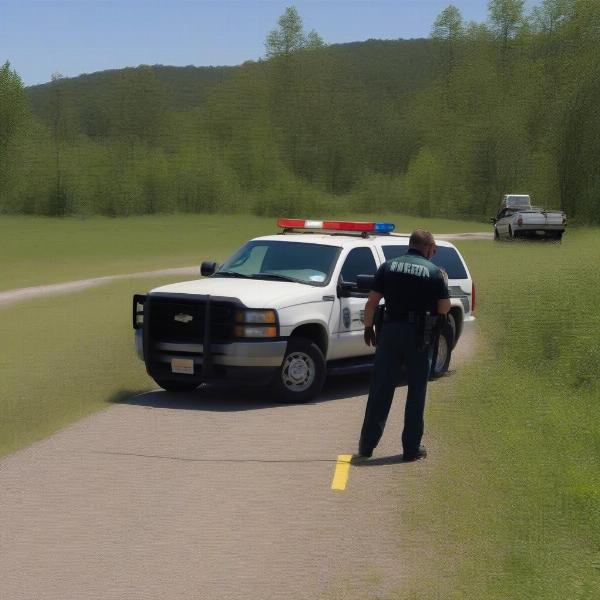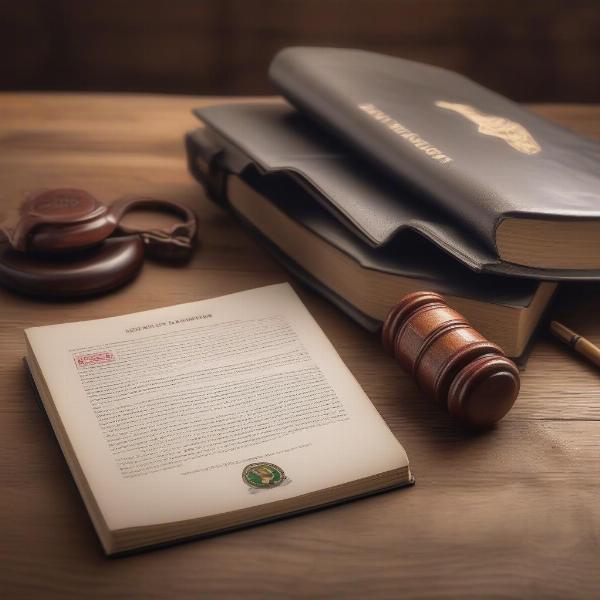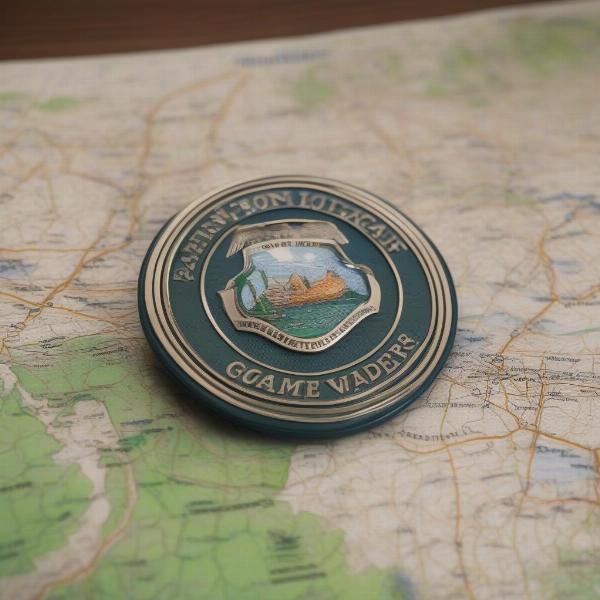It’s a common question among outdoor enthusiasts and those living in rural areas: Can Game Wardens Pull You Over For Speeding? Understanding the extent of their authority is crucial, and that’s what we’re diving into today at Supreme Duelist Blog. We aim to provide clear and concise answers, cutting through the confusion surrounding the role of game wardens. Our mission is to empower our readers with the knowledge they need, whether it’s about gaming strategies or the laws of the land.
Supreme Duelist Blog isn’t just about in-game skills; it’s also about equipping you with real-world knowledge. We believe that understanding the rules, both in virtual worlds and in the great outdoors, is vital. Whether you’re navigating a complex game or driving through remote areas, knowing who has what authority can save you time, trouble, and perhaps even a fine. So, let’s get down to the specifics of game warden jurisdiction and whether they have the right to issue speeding tickets.
The Role of a Game Warden: Beyond Hunting and Fishing
Game wardens, also known as conservation officers or wildlife officers, play a critical role in protecting natural resources. Their primary responsibility lies in enforcing wildlife laws and regulations, which include everything from hunting and fishing licenses to conservation efforts. But their job isn’t always confined to the woods or waterways.
They’re responsible for ensuring compliance with regulations that protect the environment and the wildlife within it. These regulations can often extend to areas beyond those strictly related to hunting and fishing. This might include investigating illegal dumping or other environmental violations. Because of their broad focus on conservation, it’s worth understanding the boundaries of their jurisdiction. This leads us to the core question: can they enforce traffic laws like speeding?
Can Game Wardens Pull You Over for Speeding? The Short Answer
The short answer to whether a game warden can pull you over for speeding is: it depends. The authority granted to game wardens varies significantly depending on the state, their specific training, and local laws. In many jurisdictions, game wardens are granted full law enforcement authority, similar to state police or sheriffs. This means they can legally pull you over for any traffic violation, including speeding. However, in other areas, their powers are limited to violations directly related to wildlife and conservation.
 game-warden-pulling-over-vehicle
game-warden-pulling-over-vehicle
It’s crucial to check your local state laws to fully understand what the wardens in your area can do. Generally, the broader the law enforcement training they’ve received, the more authority they will have to enforce traffic laws. In some states, it might be considered secondary to their main duties, but if they witness a violation, they might still act.
States Where Game Wardens Have Broad Authority
In several states, game wardens are considered full-fledged law enforcement officers. This means they have the power to pull you over for any traffic violation they witness, including speeding. These states often provide their game wardens with the same training as regular police officers, equipping them to handle a variety of situations.
For instance, a state with a large rural population may empower its game wardens more broadly to ensure safety and law enforcement throughout those regions. This can be particularly helpful where state police presence is less frequent. “Game wardens are the eyes and ears of conservation, but in many states, they are also the first line of law enforcement,” states Dr. Evelyn Reed, a professor of criminology specializing in rural law enforcement. “Their expanded authority can help to ensure all laws, not just conservation, are being upheld.”
States Where Game Wardens Have Limited Authority
In contrast, some states restrict game wardens’ authority to matters specifically related to wildlife and conservation. In these areas, a game warden may not be able to pull you over for speeding unless it is directly related to a conservation offense, such as reckless driving through a wildlife refuge. Even in these cases, their primary goal is still to enforce conservation laws, not necessarily traffic laws.
This means that if you’re not engaging in any hunting, fishing, or other wildlife-related activity, they might not have the same authority to stop you as a state trooper. In these scenarios, their role might be to report the violation to the appropriate authorities rather than to take direct action themselves. It really varies greatly based on the state and local regulations.
Why the Confusion? The Overlap of Responsibilities
The confusion surrounding a game warden’s authority often stems from the overlap between their conservation duties and general law enforcement. Many game wardens work in remote, rural areas where they may be the only law enforcement presence for miles.
This geographic reality often leads to a more generalized role than their formal description may suggest. It’s not unusual for them to respond to emergencies, investigate crimes, and enforce laws beyond wildlife regulations, especially in situations where no other law enforcement is immediately available. Because of this, understanding your local laws is important as you travel through rural and conservation areas.
Key Factors Determining a Game Warden’s Power to Stop You
To better understand whether a game warden can pull you over for speeding, consider the following factors that impact their jurisdiction:
- State Laws: As mentioned, each state has its own specific laws governing the authority of game wardens. Check your state’s wildlife and conservation agency website for specific details.
- Training: The level of law enforcement training game wardens receive varies. Those with full law enforcement training are more likely to have broader powers.
- Local Ordinances: Some counties or municipalities may have local ordinances that further define the powers of game wardens within their jurisdiction.
 game-warden-law-book-regulations
game-warden-law-book-regulations
- Specific Situation: The circumstances of the situation can matter. If a speeding violation is directly linked to a conservation issue (for example, reckless driving that endangers wildlife), they’re more likely to have the authority to stop you.
Understanding Your Rights During a Stop
Whether it’s a game warden, a state trooper, or a local police officer, understanding your rights during a traffic stop is essential. Remember:
- You have the right to remain silent: You don’t have to answer any questions about any possible violations.
- You have the right to an attorney: If you’re facing potential charges, you have the right to seek legal representation.
- You have the right to know why you’ve been stopped: An officer should be able to explain the reason for the traffic stop.
- You are not required to give consent to a search of your vehicle unless probable cause exists.
“Knowing your rights is not an act of defiance, but an act of self-protection,” explains attorney John Miller, specializing in constitutional rights. “The best defense is always to be well-informed and respectful.”
Frequently Asked Questions About Game Warden Authority
Let’s tackle some frequently asked questions:
Can a game warden search my vehicle?
This depends. If they have probable cause to believe you’ve committed a wildlife violation (for example, transporting illegal game), they can search your vehicle. Otherwise, they generally need a warrant to conduct a search.
What should I do if a game warden pulls me over?
Be polite, cooperative, and provide the necessary documents. It’s not the time to discuss if you think they do or don’t have the authority to pull you over for the speeding infraction. If you believe your rights were violated, address it in court.
What kind of training do game wardens receive?
Training varies by state. Some receive basic police academy training, while others receive more specialized training focused on wildlife and conservation.
How can I find out the rules in my state?
Contact your local state wildlife agency, conservation department, or your state’s department of natural resources website.
 game-warden-badge-and-map
game-warden-badge-and-map
Navigating the Grey Areas
The rules surrounding game warden authority can often seem complicated. It is essential to remember these key points:
- Authority is not always black and white: It varies greatly by location.
- Respect and cooperation are key: Being polite and complying with requests is essential even if you do not agree with their authority.
- Know your local laws: Researching your state and local regulations is the best way to avoid any misunderstandings or conflicts.
Conclusion: Knowing the Boundaries of Authority
So, can game wardens pull you over for speeding? As we’ve explored, the answer is not a simple yes or no. It depends on the state, the warden’s training, and the specific circumstances of the traffic stop. Understanding the boundaries of their authority is crucial to navigating rural areas with confidence and to ensure your own legal protection. Remember, the goal of Supreme Duelist Blog is to offer insightful information, whether in the virtual or real world.
Whether you’re on the gaming battlefield or navigating the back roads, knowledge is power. At Supreme Duelist Blog, we aim to provide that power to you. If you have any further questions or would like to contribute to our discussions, don’t hesitate to comment below! Stay informed and stay safe, and remember to buckle up and drive within the posted speed limits!
Leave a Reply